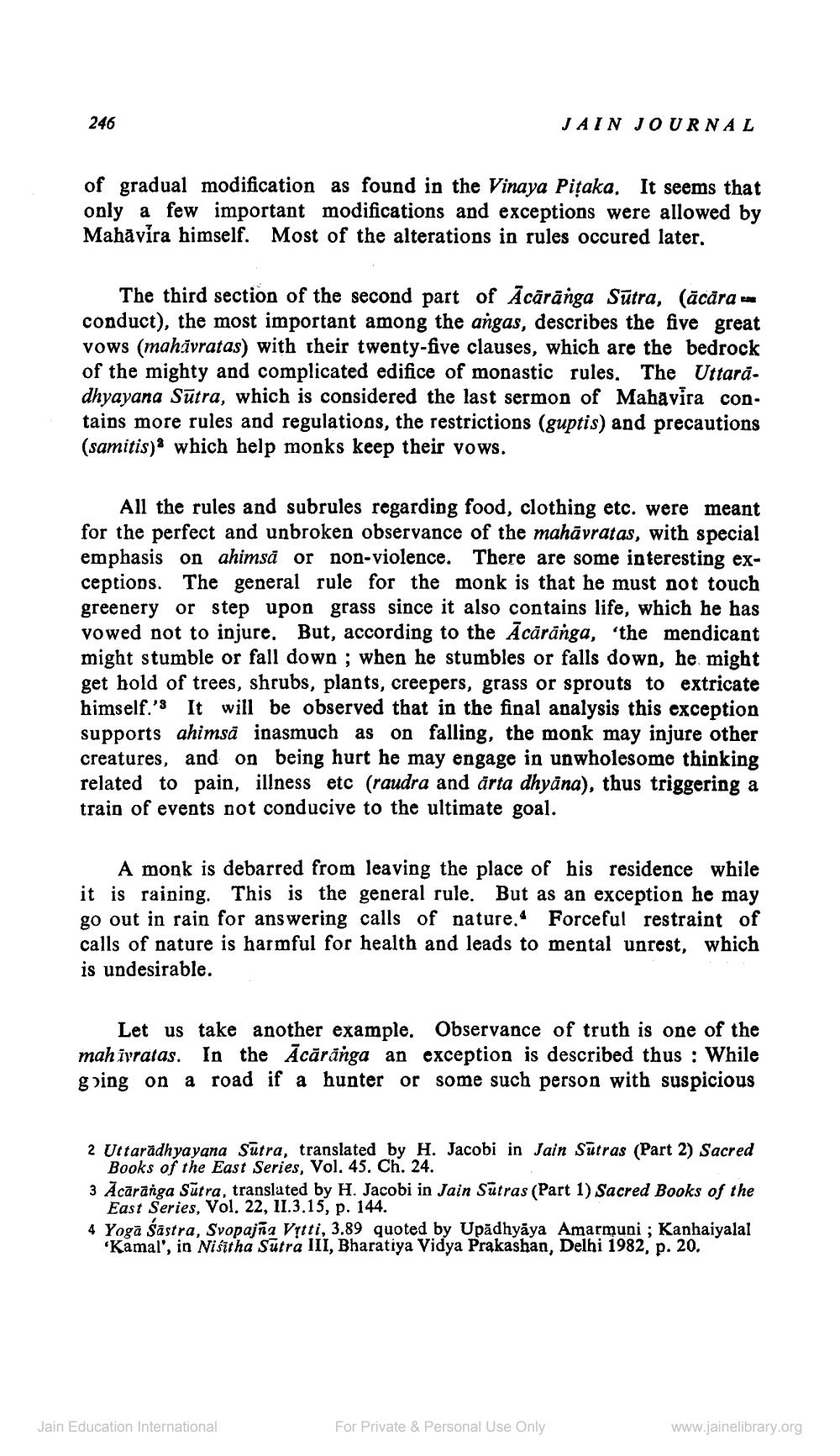________________
246
JAIN JOURNAL
of gradual modification as found in the Vinaya Pițaka. It seems that only a few important modifications and exceptions were allowed by Mahavira himself. Most of the alterations in rules occured later,
The third section of the second part of Ācārānga Sūtra, (ācāra - conduct), the most important among the angas, describes the five great vows (mahāvratas) with their twenty-five clauses, which are the bedrock of the mighty and complicated edifice of monastic rules. The Uttara. dhyayana Sūtra, which is considered the last sermon of Mahavira contains more rules and regulations, the restrictions (guptis) and precautions (samitis) which help monks keep their vows.
All the rules and subrules regarding food, clothing etc. were meant for the perfect and unbroken observance of the mahāvratas, with special emphasis on ahimsă or non-violence. There are some interesting exceptions. The general rule for the monk is that he must not touch greenery or step upon grass since it also contains life, which he has vowed not to injure. But, according to the Acārānga, 'the mendicant might stumble or fall down ; when he stumbles or falls down, he might get hold of trees, shrubs, plants, creepers, grass or sprouts to extricate himself.'3 It will be observed that in the final analysis this exception supports ahimsa inasmuch as on falling, the monk may injure other creatures, and on being hurt he may engage in unwholesome thinking related to pain, illness etc (raudra and ärta dhyāna), thus triggering a train of events not conducive to the ultimate goal.
A monk is debarred from leaving the place of his residence while it is raining. This is the general rule. But as an exception he may go out in rain for answering calls of nature. Forceful restraint of calls of nature is harmful for health and leads to mental unrest, which is undesirable.
Let us take another example. Observance of truth is one of the mahīvratas. In the Ācārānga an exception is described thus : While going on a road if a hunter or some such person with suspicious
2 Uttarădhyayana Sutra, translated by H. Jacobi in Jain Sutras (Part 2) Sacred
Books of the East Series, Vol. 45. Ch. 24. 3 Ācārānga Sūtra, translated by H. Jacobi in Jain Sutras (Part 1) Sacred Books of the
East Series, Vol. 22, 11.3.15, p. 144. 4 Yogā śāstra, Svopajña Vịtti, 3.89 quoted by Upadhyaya Amarmuni ; Kanhaiyalal
Kamal', in Nišitha Sutra III, Bharatiya Vidya Prakashan, Delhi 1982, p. 20.
Jain Education International
For Private & Personal Use Only
www.jainelibrary.org




